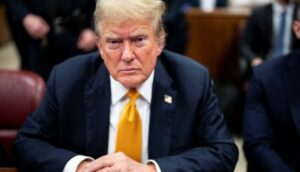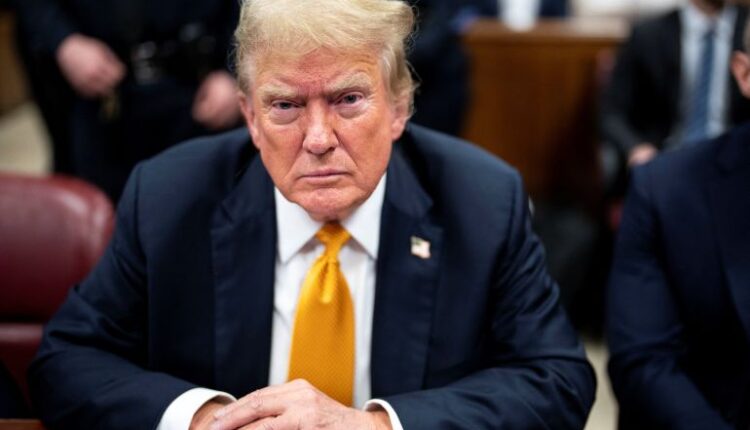
Jurors in New York have begun closed-door deliberations that will determine whether Donald Trump will be the first former US president in history convicted of a crime.
Trump, 77, has been charged with 34 felony counts of falsifying business records in relation to a $130,000 hush-money payment that his former lawyer, Michael Cohen, made to adult-film actress Stormy Daniels in the final weeks of the 2016 election.
Justice Juan Merchan on Wednesday issued instructions to the jurors on the law governing the case and what they can take into account in evaluating the former president’s guilt or innocence.
“I direct you to decide this case on the evidence and the law,” Merchan said. “You must set aside any personal opinions or bias you might have in favour of or against the defendant.”
The 12 jurors have sat silently in a New York courtroom for more than six weeks as prosecutors laid out their case and Trump’s lawyers tried to knock it down.
Their verdict could upend the 2024 presidential race, in which Trump is seeking again to win the White House.
A convicted president?
A conviction will not prevent Trump, the Republican candidate, from trying to win the White House from Democratic President Joe Biden in the November 5 election. Nor will it prevent him from taking office if he wins.
Opinion polls show the two men locked in a tight race. But Reuters/Ipsos polling has found that a guilty verdict could cost Trump support among independent and some Republican voters.
A verdict of not guilty would remove a major legal barrier, freeing Trump from the obligation to juggle court appearances and campaign stops. If convicted, he would be expected to appeal. Trump faces three other criminal prosecutions, but they are not expected to go to trial before the November 5 election.
Biden campaign officials say any verdict will not substantially change the dynamics of the election.
Trump did not speak as he entered the courtroom. On social media, he repeated his complaints that the trial was a politically motivated “witch hunt”.
During the trial, jurors heard testimony from actress Stormy Daniels, who described in lurid detail a 2006 sexual encounter with Trump, and from Michael Cohen, the former Trump fixer who paid $130,000 to buy her silence during Trump’s 2016 White House run.
Prosecutors from Manhattan District Attorney Alvin Bragg’s office say that payment could have contributed to Trump’s victory over Democrat Hillary Clinton by keeping an unflattering story out of the public eye.
“We’ll never know if this effort to hoodwink the American voter impacted the election,” prosecutor Joshua Steinglass told jurors during his closing argument on Tuesday.
They said Trump paid Cohen back in monthly installments disguised as legal fees. The state has charged him with 34 felony counts of falsifying business documents, and prosecutors faced the burden of proving “beyond a reasonable doubt,” the standard for US criminal cases, that Trump not just falsified business records, but he did so to conceal or commit another crime.
Trump has pleaded not guilty and has denied ever having sex with Daniels. His lawyers said Cohen, a convicted felon, lied under oath when he said Trump knew about the Daniels payment before the election and helped craft the reimbursement scheme after his victory.
“He is literally the greatest liar of all time,” Trump lawyer Todd Blanche told jurors on Tuesday.
Story By Aljazeera






